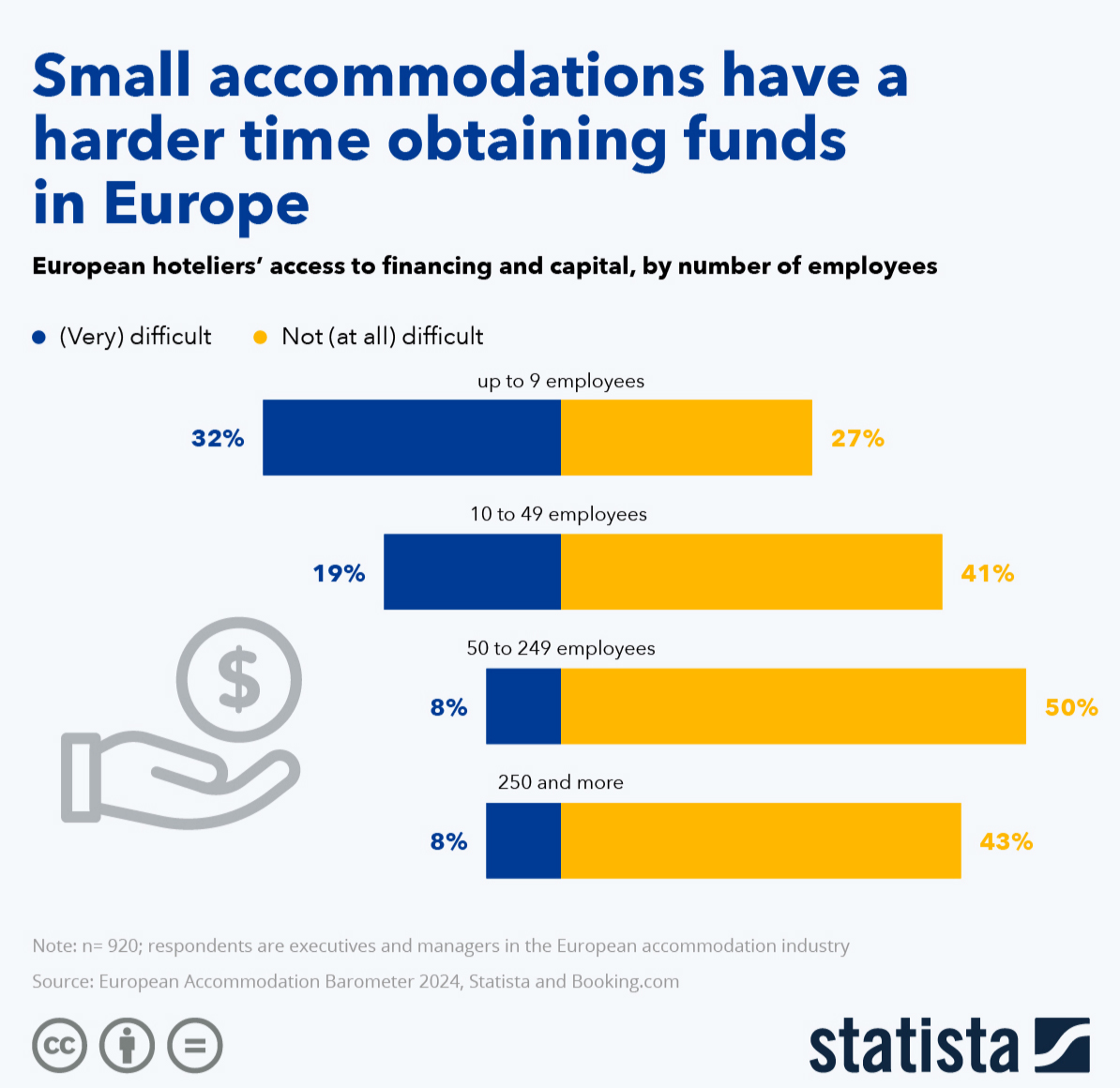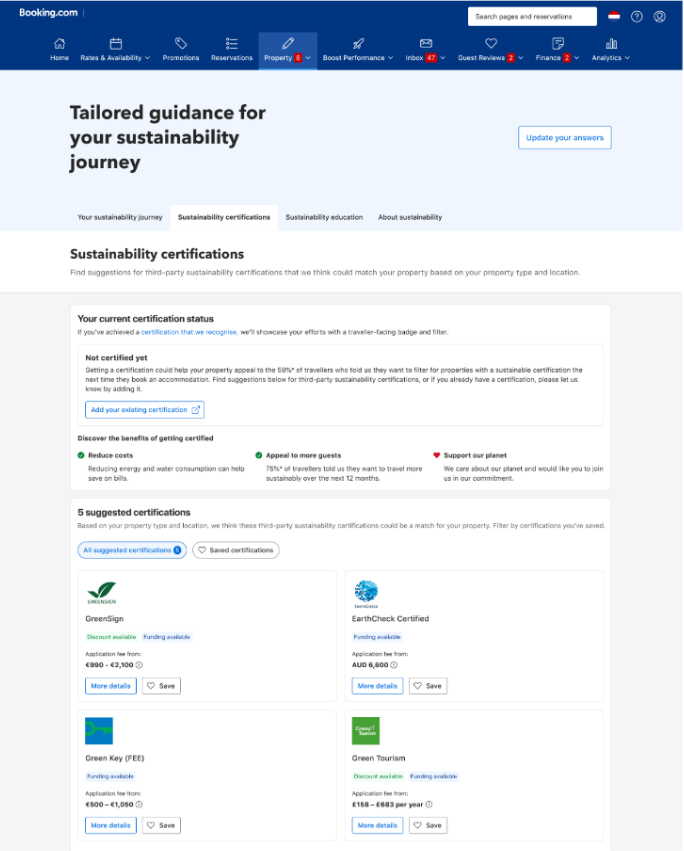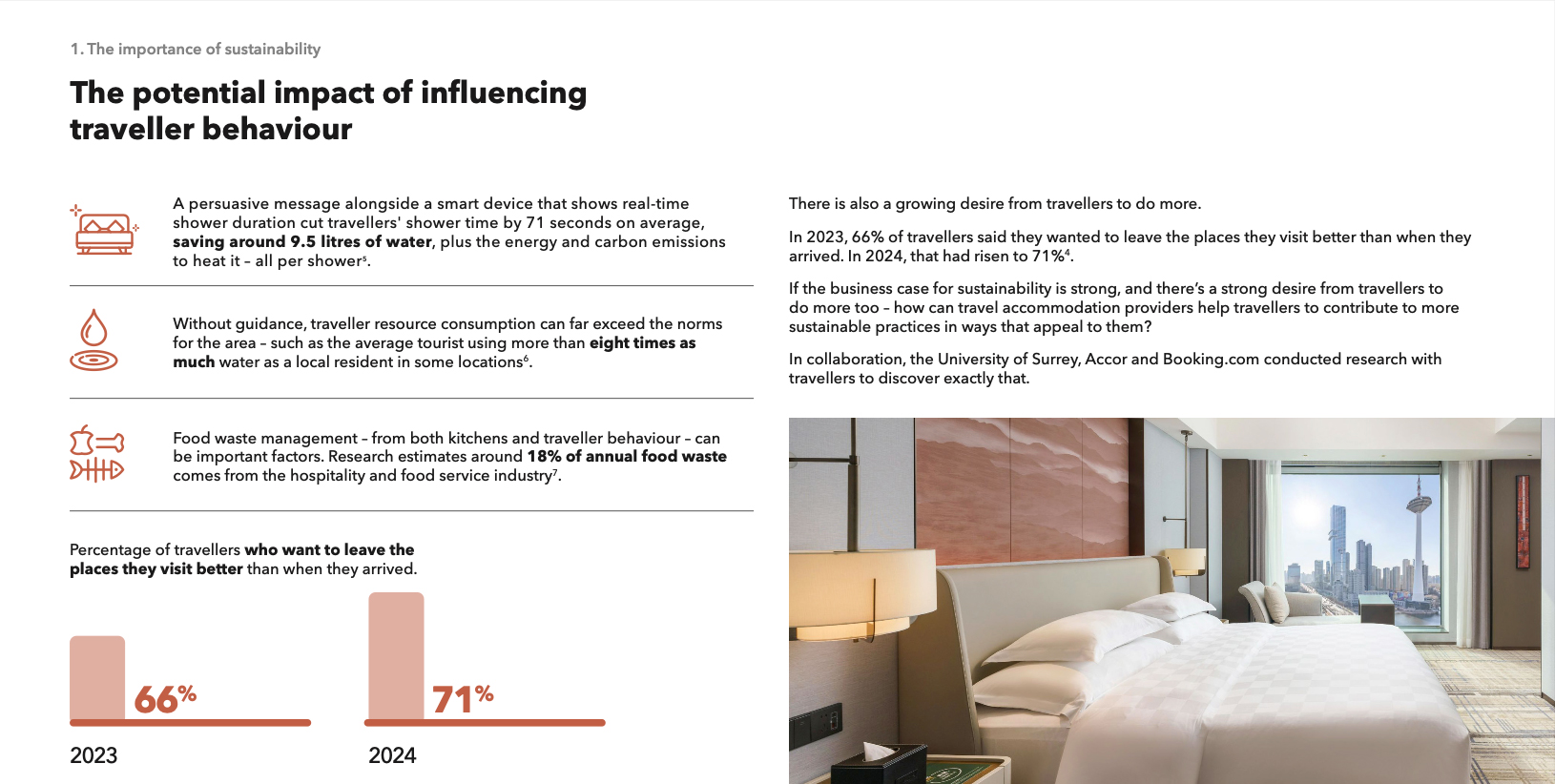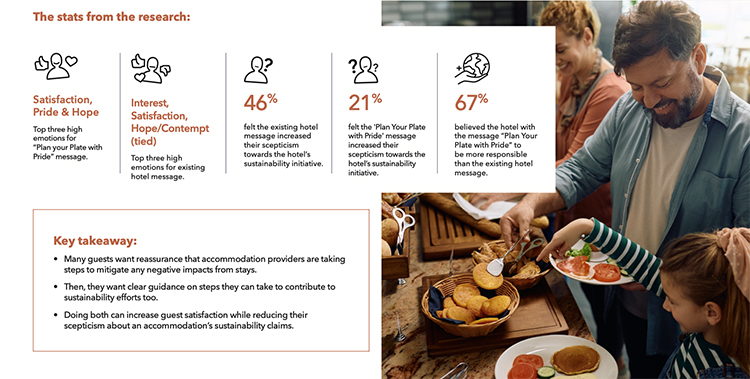Technology alone can't solve all of travel's sustainability challenges


Synopsis
While there is a lot of attention right now on AI and the role it will play in shaping the future of travel, technology has long been a key driver of growth for the travel and tourism industry. Can it now make our sector more sustainable?
At Booking.com, we believe one of our biggest opportunities for impact is supporting accommodation providers on their own sustainability journeys. However, the pathways many of our accommodation partners have to take are far from straightforward. Our partners tell us that while they want to integrate more sustainability practices into their operations, they face a number of barriers – especially when it comes to achieving third-party certification; a vital step in substantiating sustainability claims.
There's consistency in these barriers. Accommodation partners tell us they lack knowledge on which certifications are available in their regions or which practices they should implement next. They also point to high certification costs and the challenge of communicating their efforts to travelers. Technology plays a pivotal role in overcoming these barriers.
Many accommodation providers don't have the time or knowledge to research certifications and sustainability practices. This is particularly the case for small and medium-sized enterprises (SMEs). Without more targeted support from policymakers, they may lack both the capital for sustainability investments and access to financing.

At Booking.com, we can make the pathway to certification more straightforward. We've tested many approaches to doing this over the years. Now, with a better understanding of partner needs, and technology which enables information-sharing at scale, we can offer even more comprehensive support.
Through their individual extranet page on Booking.com, our partners can now access tailored recommendations on relevant certifications which fit their profile, needs and operations, as well as insights on ways to enhance their sustainability efforts. For SMEs especially, this can reduce the time needed to implement new practices.

For hospitality providers who want a deeper understanding of more sustainable hospitality practices, we partnered with UN Tourism to develop a series of open online courses on four key topics: water, waste, food and the local community. The courses are free to all accommodation providers everywhere – whether they are a Booking.com partner or not.
The barriers to obtaining third-party certification aren't just lack of knowledge. Some businesses need additional financial support to take meaningful steps toward sustainability. To help our accommodation partners overcome cost-related challenges, we have negotiated discounts with select certification bodies and highlight local funding opportunities on their extranet pages.
Our ultimate objective is to make it easier for travelers to make more sustainable choices by displaying the sustainability efforts of accommodation providers. With both regulations and travelers themselves demanding that sustainability information is shared with greater clarity and veracity, substantiating those efforts by a third-party certification is crucial. However, currently, certified properties make up a tiny percentage of our listings, so we're focused on growing the supply of more sustainable options, and we're doing that by making it easier for our accommodation partners to access insights and information that will enable faster progress on their sustainability journeys – through the ways mentioned above.
Where digital products have less impact is the 'say-do' gap – the gap between what travelers say are their intentions when it comes to sustainability and the actions they take during their trip. The cooperation of guests is vital to the efficiency of many sustainability practices within hospitality. I'm proud of our recent collaboration with Accor and the University of Surrey on new research into messaging strategies and tactics that can positively influence traveler behavior.

The research, conducted through in-depth interviews, diary studies, lab tests and in-property trials, surfaced four clear takeaways – alongside tactical ways to implement the findings. What this research highlighted most clearly across all of its takeaways is that technology can bring guests to an experience but offline communication, such as menu information and in-room messaging, still plays a vital role in helping them understand how to act more sustainably while on their trip.
What is clear from both this research and our own annual traveler surveys is the need to highlight sustainability practices in a way that is authentic, clear and precise. Demonstrating credibility is critical to engaging travelers successfully on the topic of sustainability.
Next to this, the research shone light on how effectively balancing messaging that appeals to both the pleasure and comfort of a more sustainable action. Sustainability is not the antithesis of luxury, it does dull the travel experience – on the contrary, it can enhance it. Our industry needs to collectively work to bust this persistent myth that more sustainable behaviours equate to less enjoyable experiences.
Both of these findings underscore another takeaway, which is that guests want to be empowered, not dictated to. Travel is, in its purest form, an exploration – whether that takes place three miles from home or 30,000. With the right information, explained in the right way, we can give guests the tools to explore in their own way. Technology enables us to surface inventory more effectively, but it is the traveler who ultimately makes the decision to utilize these options. Therefore, it is up to us as an industry to make those decisions easier, be that through more sustainable choices or clearer information on the value of these options.

The final takeaway of the research is that many travelers want to act as responsibly when they travel as they do at home – but they need help to bring that same level of responsibility into their travel experience. For example, as a resident of Amsterdam, recycling is part of my everyday life. However, often when I travel, recycling is a challenge, usually with one option for all my garbage and no clear communication on what is and is not recycled. The research shows that we need to enable these actions and make them compelling options.
Technology is not a remedy to the sustainability challenges travel and tourism is facing. It will take collective effort and continued collaboration from all of us across the industry to implement best practice and share the right information – in the right way – to bring together the actions of service providers and the intent of travelers to make more sustainable the way to experience the world.